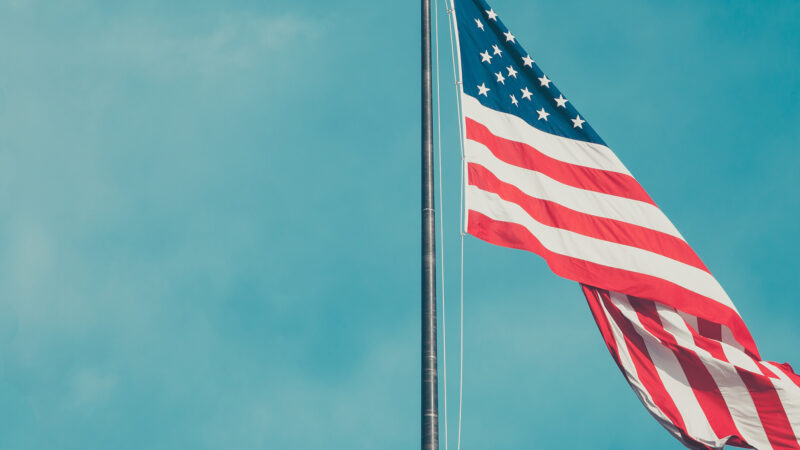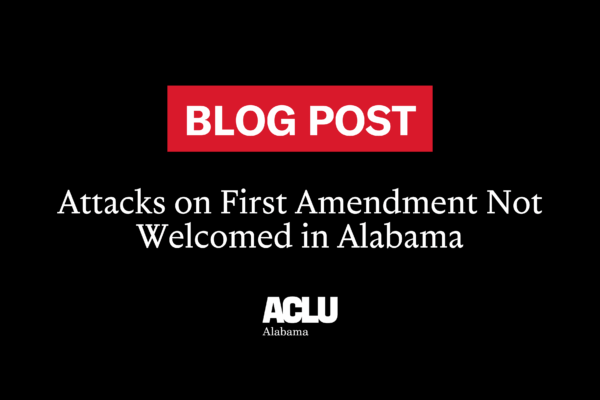First Amendment Rights

Alabama lawmakers are eager to criminalize and silence those who disagree with them or make them uncomfortable. The First Amendment of the U.S. Constitution protects every Alabamian from this government overreach.
The First Amendment of the U.S. Constitution ensures that no government can violate any American’s right to free speech, freedom of the press, the right to petition the government, the freedom to assemble, and the freedom of religion.
- This means the State of Alabama cannot deny us the right to vote.
- This means the State of Alabama cannot deny us the right to perform, read, and study topics they find uncomfortable.
- This means the State of Alabama cannot deny us the right to protest when we see a wrong.
- This means the State of Alabama cannot deny us the right to choose how we want to live our lives.
- And this means that the State of Alabama cannot threaten, criminalize, arrest, and imprison us for doing so.
The ACLU of Alabama has thrived because we have centered our work on educating on, advocating for, and litigating to protect every Alabamian’s First Amendment rights. We work to ensure that religious liberty is protected by keeping government policies from advancing specific religious beliefs and by keeping the government out of the business of religion.
The right of each and every American to practice their own religion, or no religion at all, is among the most fundamental of the freedoms guaranteed by the Bill of Rights. The Constitution’s framers understood very well that religious liberty can flourish only if the government leaves religion alone. The free exercise clause of the First Amendment guarantees the right to practice one’s religion free of government interference. That includes government both using its power to advance particular religious beliefs or practices, as well as using its power to put unconstitutional limitations on the free exercise of religion.
The fight for freedom of speech has been a bedrock of the ACLU’s mission since the organization was founded in 1920, driven by the need to protect the constitutional rights of conscientious objectors and anti-war protesters. The organization’s work quickly spread to combating censorship, securing the right to assembly, and promoting free speech in schools. The ACLU is always on guard to ensure that the First Amendment’s protections remain robust — in times of war or peace, for bloggers or the institutional press, online or off.
The Latest

Attacks on First Amendment Not Welcomed in Alabama
Cases, Campaigns & Legislation
Simon et al. v. Kay Ivey et al.
Stay Informed
Sign up to be the first to hear about how to take action.
By completing this form, I agree to receive occasional emails per the terms of the ACLU’s privacy statement.
By completing this form, I agree to receive occasional emails per the terms of the ACLU’s privacy statement.


